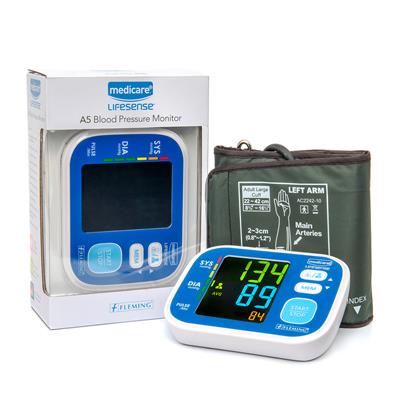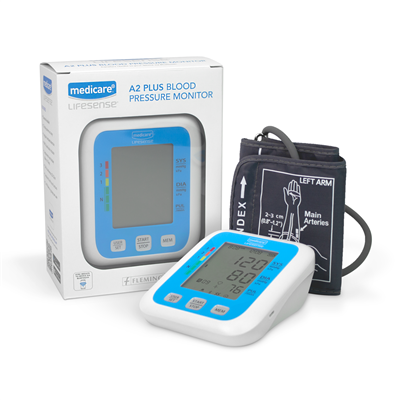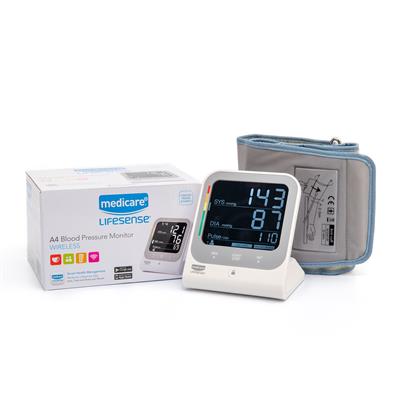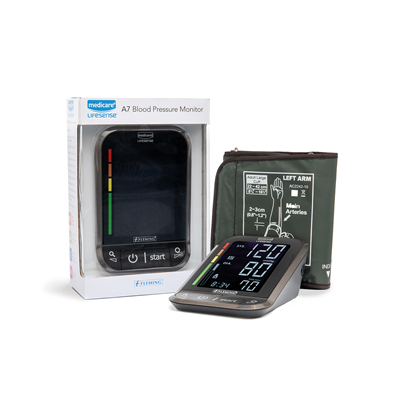Headlines
Women’s Heart Health – Knowing the Signs & Symptoms of High Blood Pressure
10 February 2023
 It is a common misconception that men are more likely to develop heart issues. Research has shown that 1 in 4 women in Ireland die from heart disease and stroke with women six times more likely to die from cardiovascular disease than breast cancer.
It is a common misconception that men are more likely to develop heart issues. Research has shown that 1 in 4 women in Ireland die from heart disease and stroke with women six times more likely to die from cardiovascular disease than breast cancer.
Women often experience different signs and symptoms which results in a late diagnosis. As a result, little can be done to reverse the damage. Knowing the signs and understanding heart-related illnesses that women experience will better prepare you with the power to know when something is wrong. One of the key signs of your poor heart health is high blood pressure.
The recommended target level for blood pressure should be 120/90 mmHg.
A blood pressure reading of 140/90mmHg or higher is considered high blood pressure and requires medical attention. However, if you have a medical condition or have had a stroke your doctor may prescribe a different target. A women’s risk of experiencing high blood pressure increases after menopause.

If you are experiencing high blood pressure it is recommended to have a blood pressure monitor at home. Our Medicare LifeSense blood pressure monitors connect to our free Medicare LifeSense app.
The app will safely store your readings and allow you to share them with your doctor and carers. Sharing this information with your doctor may help lead to a faster diagnosis.

High Blood Pressure
High blood pressure, also known as hypertension, refers to the amount of work the heart must do to push blood through the arteries. Having high blood pressure increases your risk of having a heart attack or a stroke. It can also lead to other conditions such as heart disease, kidney failure, dementia, and problems with your eyesight. High blood pressure is often left underestimated and undiagnosed amongst women.Signs & Symptoms
High blood pressure typically has no symptoms. Checking your blood pressure is the only way to determine whether or not you’re experiencing high blood pressure.The recommended target level for blood pressure should be 120/90 mmHg.
A blood pressure reading of 140/90mmHg or higher is considered high blood pressure and requires medical attention. However, if you have a medical condition or have had a stroke your doctor may prescribe a different target. A women’s risk of experiencing high blood pressure increases after menopause.
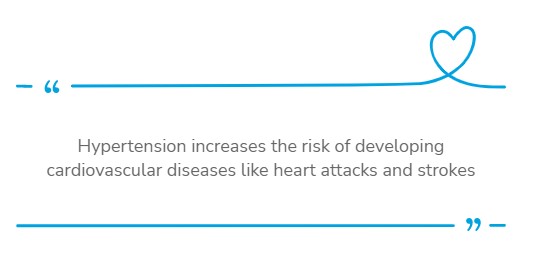
Causes of High Blood Pressure
- Age
- Diet
- Family history
- High salt intake
- Being overweight
- Drinking excess alcohol
- Smoking
- Lack of sleep
Prevention
Lifestyle changes can have the best impact when it comes to reducing your high blood pressure. Below is a list of suggestions to help you manage your blood pressure. We also encourage you to seek advice from your doctor and healthcare professionals.- Maintain a healthy weight.
- Take your medication as prescribed.
- Lower intake of alcohol & caffeine.
- Stop smoking.
- Healthy balanced diet with fresh fruit and vegetables.
How Often Should I Check My Blood Pressure?
According to the HSE, if you’re aged between 18 to 39 years and are healthy with no family history of high blood pressure it is recommend getting it checked once every 5 years. If you are 40 years or older, it is recommended to have your blood pressure checked at least once a year.If you are experiencing high blood pressure it is recommended to have a blood pressure monitor at home. Our Medicare LifeSense blood pressure monitors connect to our free Medicare LifeSense app.
Checking Your Blood Pressure at Home
Our Medicare Lifesense Blood Pressure Monitors are designed to be easily operated from the comfort of your own home and have been clinically proven for accuracy. They are available in manual and Bluetooth versions. They can be used in conjunction with the Medicare Lifesense App where the Bluetooth monitors automatically upload your results or you can manually enter them from your basic version.The app will safely store your readings and allow you to share them with your doctor and carers. Sharing this information with your doctor may help lead to a faster diagnosis.


